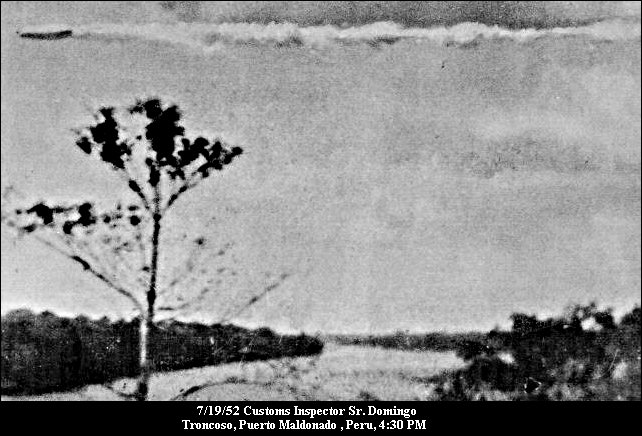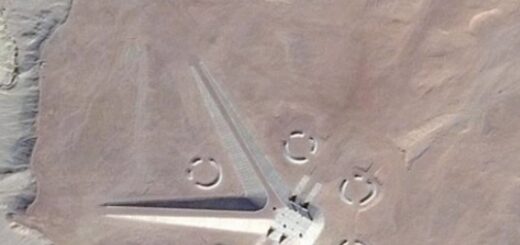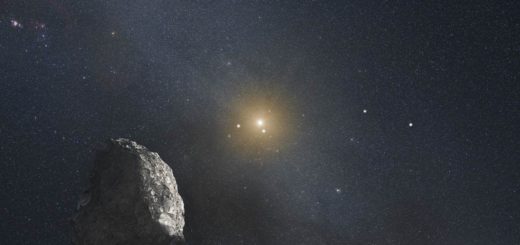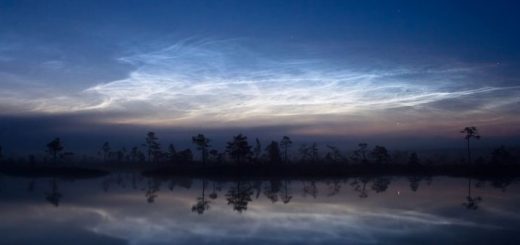Peru: Customs Inspector Films Large UFO

At about 16:30 in the afternoon of 19 July 1952, the attention of Customs Inspector, Sr. Domingo Troncoso, then with the Peruvian Customs Office at Puerto Maldonado on the jungle frontier with Bolivia, was called to a very strange cigar-shaped flying object over the river area.
The big dirigible-shaped craft was flying horizontally and fairly low in the sky, passing from right to left from the observer’s position. It was leaving a dense trail of thick smoke, vapor, or substance of some kind on its wake. The thick, whitish substance appeared to be emitted from the aft end of the object in flight.
That this object was a real, structured, physical machine may be seen from its reflection in the waters of the Madre de Dios River underneath it. It can be clearly seen to be well above the broad-leaved jungle trees along the bank of the river in the foreground of the picture.
The object was estimated to be over a hundred feet long. Sr. Troncoso obtained a camera and was able to get one good photograph of the cigar-shaped object.
The following was submitted by Colonel McHenry Hamilton, Jr., USAF, American Air Attache, Lima, Peru.
Aside from some comments by the preparing officer, the report consisted of a translation of a newspaper article in a Lima daily.
A “luminous disc” was supposed to have sped over the Puerto Maldonado area of Peru near the Bolivian border at 4:50 p.m. on July 19th [1951], and among those who claimed to have witnessed the passage was a Peruvian school teacher who took a picture of the UFO, an object that was spewing an impressive wake of smoke. A newspaper account read in part:
“The colour of the head or nucleus of this disc was an intense orange. The direction was south to north, was visible from 1 to 2 minutes, leaving a thick vaporous trail which floated for more than 15 minutes. The altitude was more or less 2500 to 3000 feet. It was seen in broad daylight. During its passage, the Peruvian Corporation of the Amazon radio went dead and wasn’t able to transmit or receive any signals.”
“The Peruvian Minister of Education later held discussions with American Embassy officials about the UFO report. The school teacher’s photograph and an article about the discussion with the Americans was published in the August 15th issue of the Lima newspaper El Comercio.
“The American Intelligence report on the case seems to be incomplete because there is an unexplained reference to more than one photograph. Colonel Hamilton was informed by Peruvian authorities that some falsification had occurred involving “three different photographs taken by three different persons.”
In a letter dated August 10, 1957, Mr. Moseley gave NICAP the following account of the incident:
In Lima I met Senior Pedro Bardi, who is an agricultural engineer. On July 19, 1952, while on a farm in the Madre de Dios section of Peru, he and others saw a saucer. It was about 4.30 p.m. and they were talking to Lima by radio.
Suddenly, according to Bardi, the radio went dead. They looked out the window and saw a round object going by at high speed. (The witnesses included Pedro Arellano, owner of the farm). The object had passed; it was at an estimated 100 meters altitude and was a little smaller than a DC-3, according to Bardi. It made a buzzing sound as it went by.
The object’s speed, Moseley explains, was determined by a report that it was seen four minutes later near Porto Maldonado, 120 kilometers distant. This speed was computed at 1117 miles per hour.
The photograph was secured from a customs administrator named Domingo Troncosco, who said he had taken it as the object flew near the port. Though the photo shows a cigar-shaped object instead of the round shape Bardi described, this could possibly have been due to an elongated effect caused by speed.
“It seems obvious to me, Moseley told NICAP, that the photo is genuine.”
“Incidentally, I strongly doubt if this particular saucer was anything but earth-made.”
“The object traveled from left to right at about airplane speed. When the trail settled to ground it turned out to be a mass of thin fibrous threads.”



 Creators of mankind
Creators of mankind Description of “Tall white aliens”
Description of “Tall white aliens” Where they came from?
Where they came from? About hostile civilizations
About hostile civilizations The war for the Earth
The war for the Earth “Tall white aliens” about eternal life
“Tall white aliens” about eternal life Video: “Nordic aliens”
Video: “Nordic aliens” Aliens
Aliens Alien encounters
Alien encounters The aliens base
The aliens base UFO
UFO Technology UFO
Technology UFO Underground civilization
Underground civilization Ancient alien artifacts
Ancient alien artifacts Military and UFO
Military and UFO Mysteries and hypotheses
Mysteries and hypotheses Scientific facts
Scientific facts


















